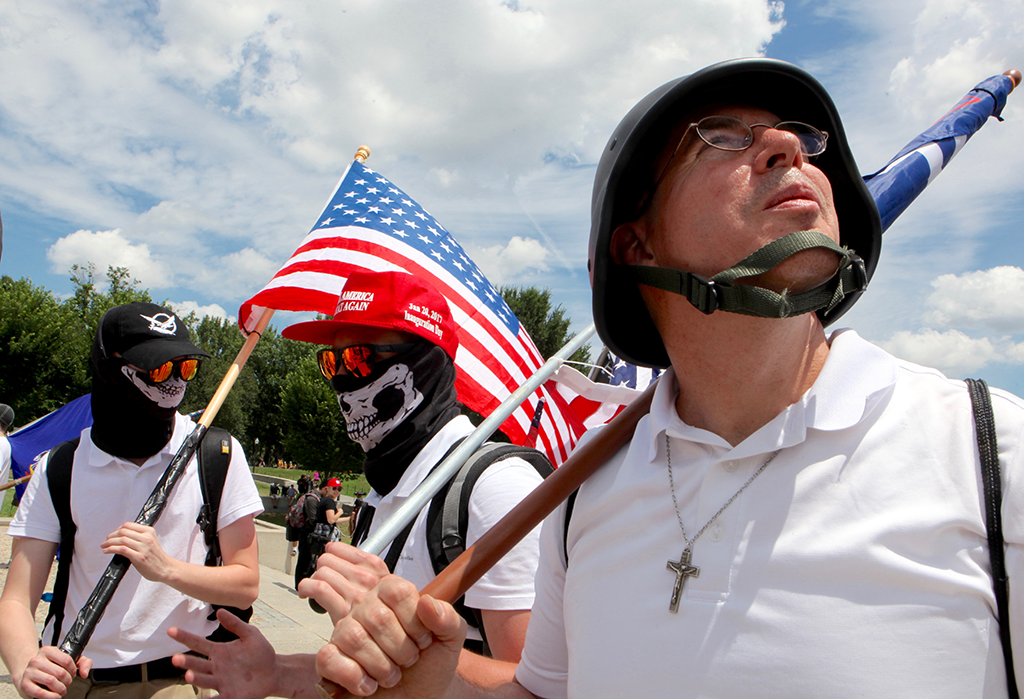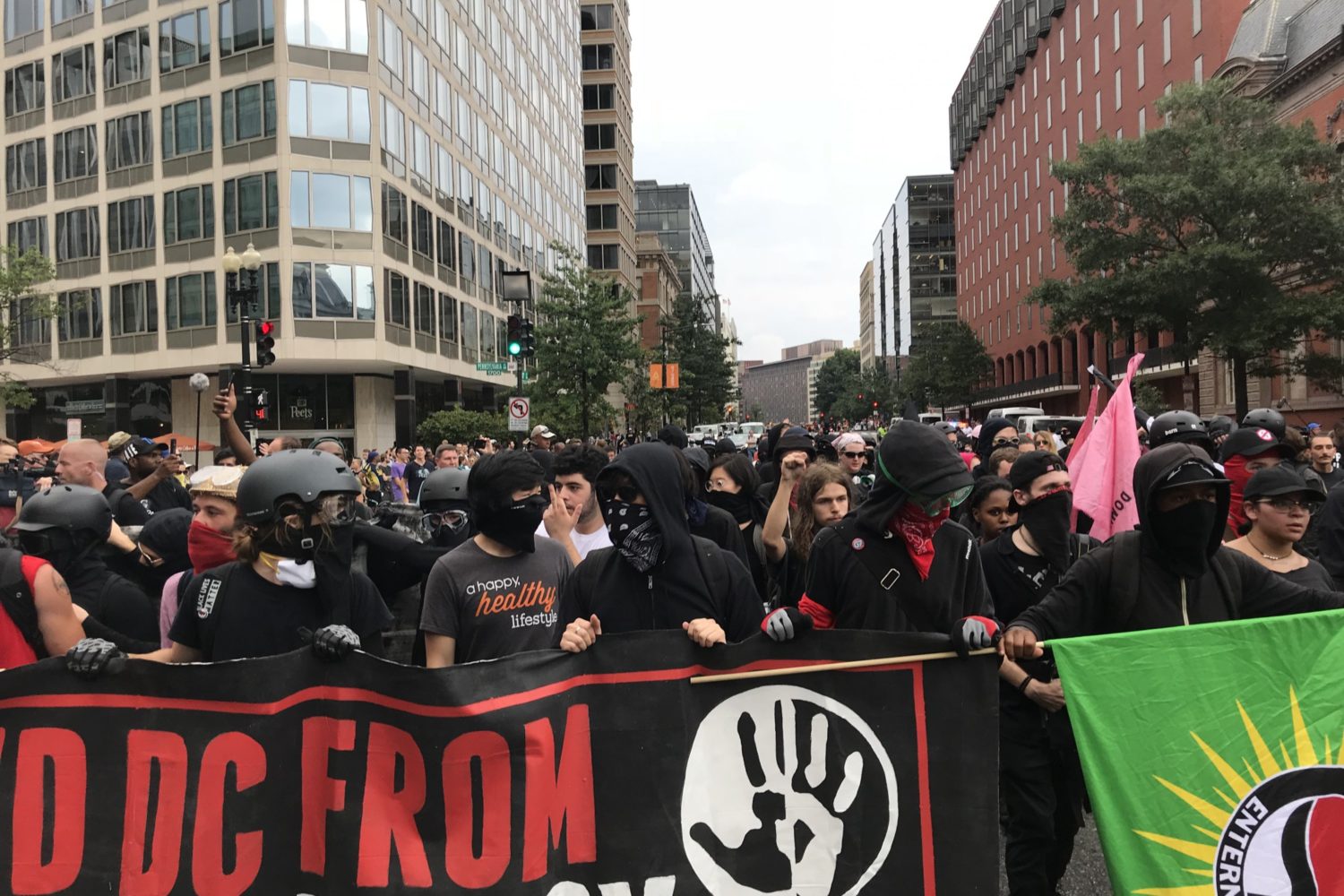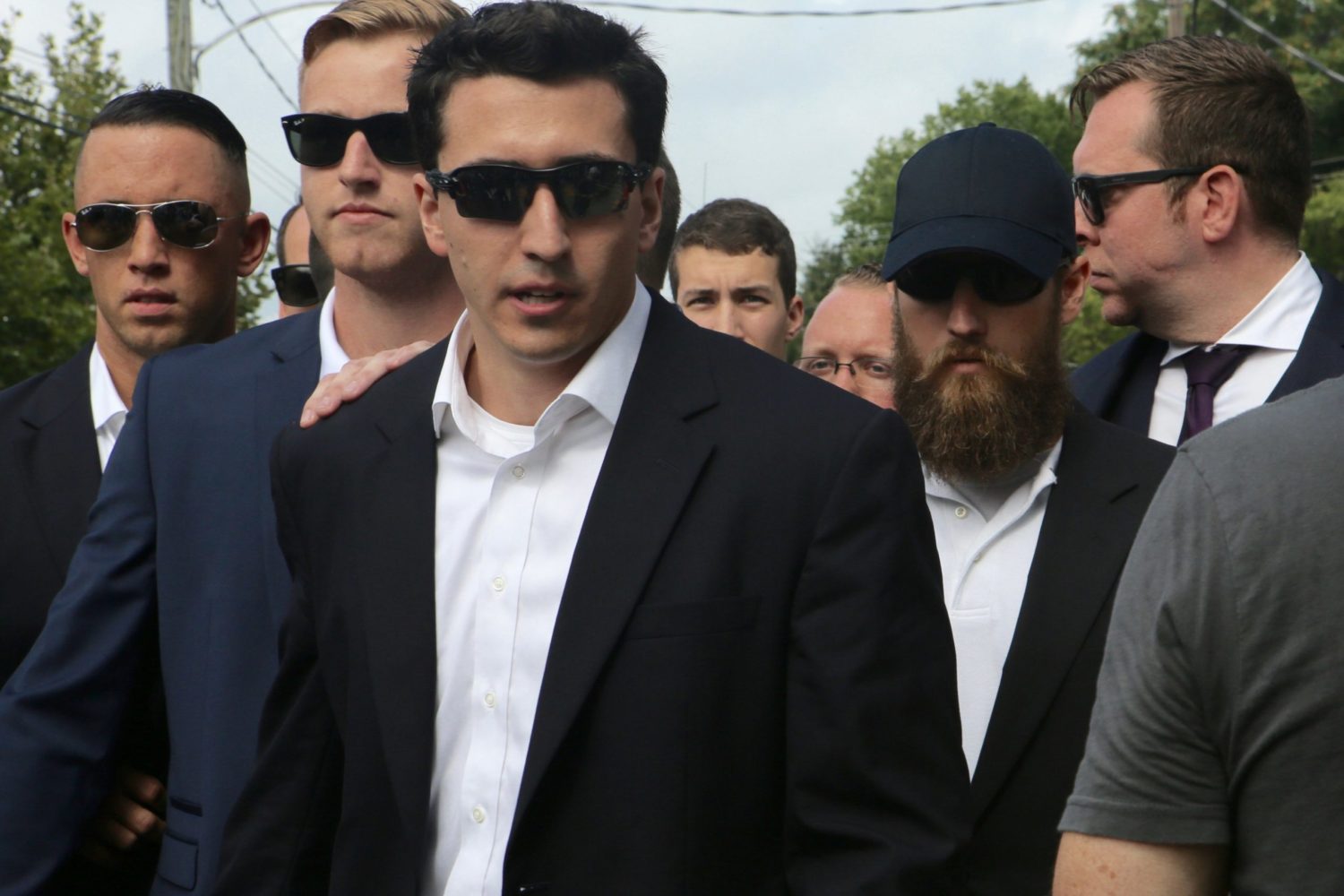When white supremacists descend on downtown DC for the “Unite the Right 2” Sunday, you might feel enraged. But, legally speaking, can you cuss out a neo-Nazi? The answer is (probably, conditionally) yes.
Why is the legality of confronting a white nationalist even a question? Rally organizer Jason Kessler was recently awarded $5 in damages after activist Donna Gasapo excoriated the alt-right organizer as he left a Virginia courthouse, telling Kessler “fuck you” and calling him a “crybaby” and a “murderer.” Kessler sued Gasapo under Virginia’s insulting words statute—a law derived from an 1810 anti-dueling provision—for $500, and she ultimately had to pay the self-proclaimed “white civil rights activist” only 1 percent of that total because a judge found that while the words could have provoked violence, they weren’t defamatory.
Virginia’s “insulting words” law is unusual, and DC repealed an outdated anti-dueling law of its own back in 2004. Still, “fighting words” aren’t considered a form of speech protected by the First Amendment. The scope of that exception is “very limited,” says Gabe Rottman, a lawyer with the Reporters Committee for Freedom of the Press, and it depends on context. For instance, speech that has a legitimate chance of starting a fight could expose you, but swearing a blue streak at an alt-right demonstrator across Lafayette Park, separated by police and barricades, would likely be fine.
So, could Kessler’s name-calling suit work in DC? “I would say the things that [Gasapo] said would be protected opinion,” says Laura R. Handman, a partner at Davis Wright Tremaine.
What if, I asked, I yelled something profane, potentially defamatory, and vaguely threatening all at once? Say, “Fuck you, Nazi, you deserve to die”? The two First Amendment lawyers I asked seemed to concur that I was on solid ground, legally speaking, and wouldn’t be subject to DC’s “disorderly conduct” law, which prohibits “offensive language or gestures” that would be “likely to provoke immediate physical retaliation” or a similar federal regulation (applicable in Lafayette Square because it’s National Park Service land). “If you don’t have the stick in your hand,” says Handman, “you deserve to die” probably wouldn’t constitute a threat.
But just because your speech against white supremacists is protected by the First Amendment doesn’t mean counter-protesting “Unite the Right 2” is free of legal risks. “White supremacists generally are inclined to use a court to shield them from the consequences of the public opposing their abhorrent viewpoints,” Gasapo’s lawyer, Pam Starsia, says. Starsia frequently represents activists, and she she added, “Everybody will not be surprised if the police take the opportunity to arrest anti-fascist protesters” for disorderly conduct of some sort, like blocking a road or sidewalk.
So, to conclude: As long as your words don’t seem threatening or likely to lead to immediate violence, you should be able to call Jason Kessler and his cadre of white nationalists whatever obscenity-loaded names you want.



















